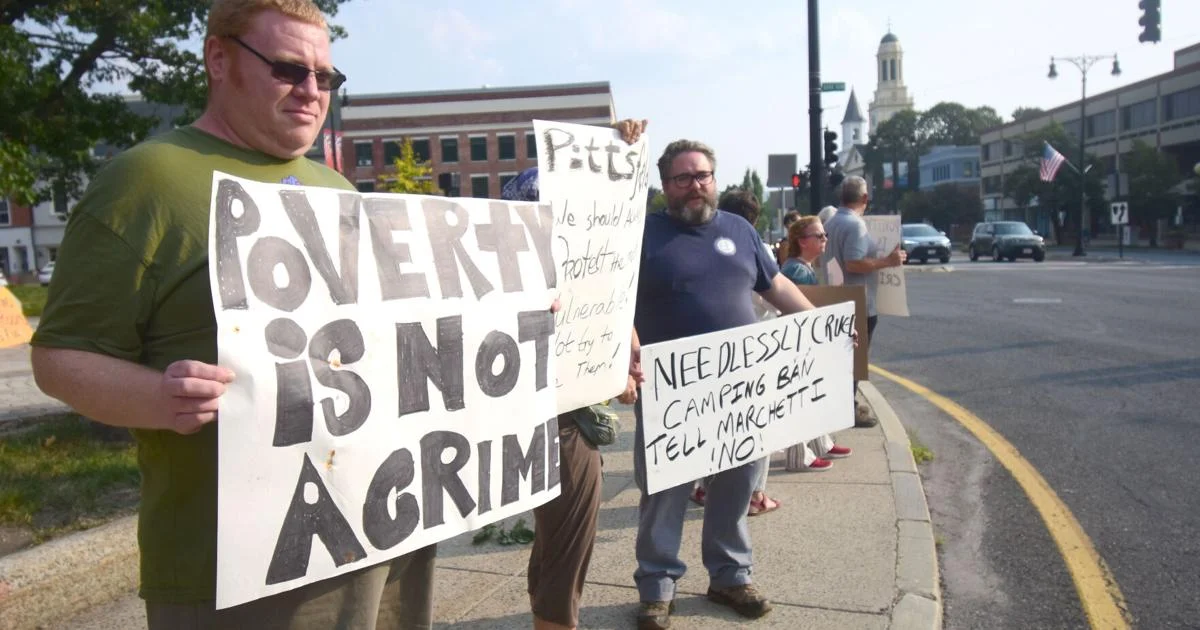Copyright berkshireeagle

PITTSFIELD — The Board of Health is taking a closer look at how other communities have tackled homelessness before deciding what to do with the city’s proposed camping ban — a process that members say will take a few months. In a letter to the City Council, the board said it plans to submit a report by February 2026 outlining recommendations and a proposed implementation timeline for the controversial camping ban, which would prohibit camping and the creation of shelters on city property. “The Board of Health will support the Health Department in developing an alternative enforcement and response approach that prioritizes both public health and human dignity,” the letter stated. The board said it intends to review the proposal through a public health lens, emphasizing compassion and evidence-based strategies over punitive enforcement. “The Board recognizes that the current camping ban ordinance remains an evolving document, and we will review it with the core belief that housing is a social determinant of health. Our goal is to explore all possible solutions that will have a positive impact on all stakeholders.” The ordinance was introduced last spring by Mayor Peter Marchetti, who said it was intended to address complaints from downtown business owners about trash, defecation, panhandling and people sleeping in doorways. Supporters argue the measure is needed to increase foot traffic and the cleanliness of downtown to protect businesses, while opponents counter that it criminalizes poverty without addressing the root causes of homelessness. It was referred to the Board of Health earlier this year at the request of Andy Cambi, Pittsfield’s director of public health. Now, board members are researching programs in nearby communities such as Northampton and Amherst, as well as others across the country, to identify models that have proven effective elsewhere. “We are just starting our literature search to see which kind of programs are out there,” said Board of Health Chair Bobbie Elliott during Tuesday's meeting of the City Council. “We're going to be looking more broadly at other programs in other parts of the country, based on what the science is showing, the programs that are evidence-based, that are likely to have good outcomes.” One model the board is studying closely is Northampton’s Division of Community Care, a public health-led program that deploys trained responders to help residents in crisis. The team provides emotional support, de-escalation, advocacy, and resource referrals for people experiencing homelessness, mental health challenges, substance use issues, or family conflicts, all with a trauma-informed approach. Cambi said Pittsfield officials have already reached out to Northampton to schedule a site visit. “We're fortunate to find the Northampton model early because it's a Western Mass program,” Elliott said. Alongside outside models, Cambi said the board is also evaluating local resources, including the co-responder program, a vacant social worker position in the Health Department and the city’s community health worker. The department also plans to study other municipalities that have enacted camping bans to see “how unsuccessful they may have been and what concerns they run into” and learn from their outcomes, Cambi said. During a recent Board of Health meeting, Elliott said the group intends to hear presentations from community organizations such as the Homeless Advisory Committee, consult with departments like police and fire, and spend time walking downtown to better understand conditions on the ground. Board members stressed that they want to avoid punitive approaches. Illegal activity, they said, should remain a matter for law enforcement, while health officials should focus on building trust, offering immediate support, and connecting unhoused residents to services like housing, health care and counseling. Cambi added that the Health Department currently lacks the trauma-informed and de-escalation training needed to carry out enforcement as written. “They’re trained inspectors to do regulatory checks,” he said. “So we would be setting up our residents for failure.”



